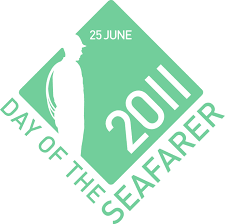Arrest of Security Team, Tough Stance on Ransom Could Endanger Seamen
The sentencing of a foreign security team to long jail terms for bringing into Somalia $3.6 million for pirates holding hijacked ships has raised questions over the future of ransom payments, and the safety of hundreds of hostages still being held.
Somalia surprised everyone when it handed down the sentences against the men from Kenya-based security company Salama Fikira, who were nabbed in Mogadishu’s Aden Adde Airport as they transferred the cash to a plane designed to drop it for the pirates.
However, according to the head of the Transitional Federal Government’s Anti-Piracy Task Force, Prof. Muhyadin Ali Yusuf, the shipping industry had better get used to a tough new position.
“The Somali position on ransoms is clear; payment of this money has to be stopped through good strategy,” he told Somalia Report. “Piracy is a business and ransom encourages piracy. Stopping this payment is the best solution to stop piracy.”
But the consequences of abruptly stopping ransoms – or at least those that pass through Somali soil – could be deadly. Maritime officials say the seizure of ransoms will compel armed pirates to kill their hostages.
“Somali pirates will fight to the finish if they don’t get payment,” one maritime official told Somalia Report. “The victims will always be the hostages they are holding.”
Senior maritime officials say that ransom payments are a necessary evil until piracy can be dealt with.
“Yes, ransom may be the reason behind the booming business of piracy; however, this is the only option available to the owners to secure the safe release of their crews, vessel and cargo,” Cyrus Mody, the London-based manager of the International Maritime Bureau, told Somalia Report.
Mody warned that if ransoms payments coming through Somalia were stopped, then owners would have to consider alternative methods of delivering money, which could prove more dangerous.
Posturing, sour deal
Yet according to security officials, it may not come to this, as there is more to the seizure of the ransom drop than meets the eye.
A UN security officer, who asked not to be named as he is not authorized to speak to the media, said this is not the first time ransom money handlers have landed in Mogadishu before proceeding to Hobyo, Eyl, Galkayo or Harardhere air strips and then to the hijacked ships at anchorages.
“We understand the recent arrest came because a deal might have gone sour,” the official said. “The TFG is not sincere in its detention of the foreign security team. There is an issue under the blanket.”
Other maritime sources say Mogadishu has been a routine stopover for foreign security teams carrying large sums of money to the pirates. The circumstance of the arrest thus raises fresh questions about the role of the TFG in the multinational anti-piracy initiative, which has shown few results.
According to Dr. Martin Murphy, a Virginia-based piracy commentator, the TFG is just throwing its weight around pointlessly and endangering sailors’ lives.
“The news that they have arrested six foreigners carrying a $3.6 million ransom reportedly for the release of an Egyptian ship, the MV Suez, and a Chinese vessel, the MV Yuan Xiang, is unwelcome” wrote Dr. Murphy in his piracy blog.
“The TFG’s opposition is not, after all, principled. It is not opposed to the payment of ransom. In the meanwhile a bunch of almost-forgotten sailors, their hopes of release newly-dashed, remains pawns in their game.”
Alternative routes, more cash for security firms
Mombasa-based maritime officials told Somalia Report that the conviction probably just means that alternative routes, such as by sea from Mombasa, will be used for ransom payments, and that the private security companies will rake in more cash as they seek ways around the TFG ban.
In 2010, more than $110 million was paid in ransoms, an average of $4.85 million per hijacking, according to a recent United Nations Office on Drugs and Crime (UNODC) study. During the said period, private security companies, legal firms and private airlines have swollen their own coffers through legal advice and ransom money handling.
“Ransom payments to pirates are likely to continue unabated, given that ransom handling is a lucrative business in this region,” Joseph Ayoro of the East African Seafarers’ Assistance Program told Somalia Report. “There will be no peaceful releases for ships and crews.”
Since the arrests, the two ships the seized money was destined for, the MV Suez and MV Yuan Xiang, have been released, so fresh ransom payments got to the ships somehow - either by sea or via Mogadishu, with the government once again turning a blind eye.
Where will the money go?
Maritime industry figures also say the fact the government is going to hold onto the $3.6 million (although Western diplomats believe a deal will be struck to release the six foreigners) is a worrying development, and could possibly encourage Puntland or Somaliland to see this as an easy source of income and start confiscating money.
The TFG budget for 2010 was just over $22 million, according to a confidential audit report released in May and obtained by Somalia Report, meaning that this one seizure represents a boost of around 16 per cent of the annual spend.
The Somali government has not said what it will do with the money, and it was a question that Prof Yusuf could not answer.
Given, however, that the same report by the head of the Public Finance Management Unit said it had uncovered gross public financial mismanagement, large scale misappropriation of public funds, and large scale misappropriations of Arabian donor funds in 2009 and 2010, few in the shipping industry can solace in the belief the missing cash will be going to a good cause.
OCEANUSLive.org


Information, Security, Safety; Shared
Submitted by Team@oceanuslive.org